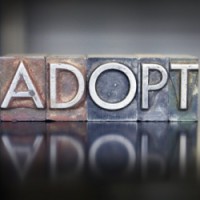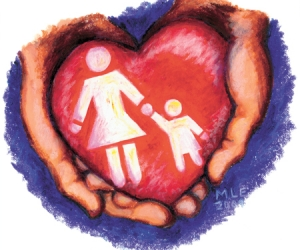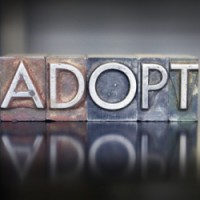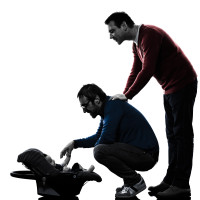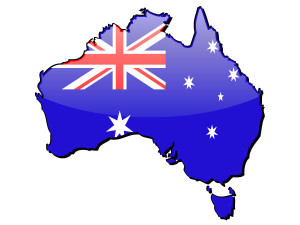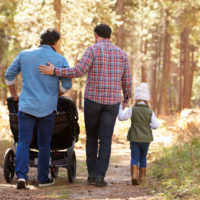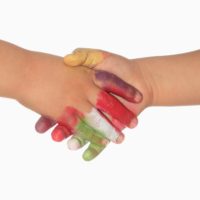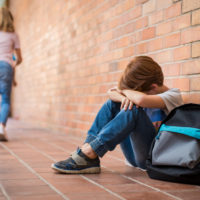
Social media has become a space where my own family and friends have turned into censors, denigrating me for being gay from thousands of miles away casting gay shame.
On the quiet, promising first morning of June, I received a text message from my brother in Abuja, Nigeria. “Please, refrain from all these shameful acts,” he wrote. Gay shame. “Everyone is tired of you. Mummy is crying, Daddy is crying. If you don’t value relationships, we do!”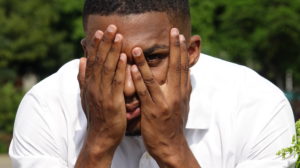
My brother had written after I had posted a picture on Facebook that showed me hugging a male friend. A mixture of anger, sadness and fatigue erupted in my body. “Block me if you are tired of my shameful acts,” I replied. “I won’t be the first or last person to be rejected by his family.”
I had the audacity to start a queer publication in Nigeria and was disowned by my country as a gay man, writer and activist. After a vicious homophobic attack in Akwanga, my hometown in central Nigeria, I moved to the United States and sought asylum here in the summer of 2018.
In a certain public rendering I could come across as a brave activist. But I have lived with intense private pain and discomfort after homophobic shaming from people like my own brother.
Social media can be a delightful way to connect with loved ones far away, but for me it has also become a space where my own family and friends have turned into censors, distorting my life, denigrating my being gay from thousands of miles away.
In Nigeria, I lived with the knowledge that my secret life as a gay man would eventually crumble under the weight of parental expectations. I could see clearly how it would pan out: After turning 30, I would have to marry a woman who might know I am gay but would prefer marrying me to being unmarried at a certain age. We would have three children in quick succession, as procreation is a duty I would be expected to fulfill promptly, duty being the bedrock of familial relationships.
My wife and I would suffer dutifully and receive the blessings of our parents. On seeing my wife and me in matching outfits, my father’s expressionless face would break into a rare, full smile. He would present us to his friends and colleagues at parties. My mother would carry around my children and make her friends, whose children were yet to bear them grandchildren, look on in envy.
But I walked out the door. I chose safety and freedom over years of pain and trauma that would come with such societal and parental approval. In Washington, where I live on the little that is left of my savings, the homophobia of my home and family follows me through social media, through emails and text messages.
There are days when I forget I am gay; those days are my happiest. I hang out with friends, not as a gay man hanging out with other gay men, but as friends having a good time. I return to my apartment with beautiful pictures in my phone.
Yet when I am about to post my pictures on social media, I examine them through the searching eyes of my staunchly evangelical Christian parents, through the prying eyes of my childhood friends who still remember me as the boy who would recite chapters of the Bible. I swipe through my pictures. “This is very gay!” “This is super gay!” “This is quite gay!” I judge my own images and delete the pictures. I am my own censor.
A few days after the exchange with my brother, a cousin sent me a message: “Jesus loves you, bro! Come back to him. He is ready to forgive you and take you back as his lovely child.”
I climbed back in bed and rolled myself into a ball as my heart sank into the hollow of my gut. My stomach gave a loud, nervous growl. I longed for death. These messages pull me back to the existential orbit I am always trying to escape. I ask myself, “Is this really worth losing loved ones over? ” All this gay shame.
I should relish the freedom America offers me, but it feels like I am running in the middle of a busy highway or breathing under water. Hiding in the closet is all I have known.
Some days ago, I was at a pride event for gay Africans in Washington, in a West African basement restaurant. I was chatting with a few Nigerians when a charming photographer raised his camera toward us. They instinctively ducked as if dodging a bullet. “You can never tell where those pictures will end up,” someone said. I nodded in agreement.
NYTimes.com, July 6, 2019 by Richard Akuson
Click here to read the entire article.
The post “This is Quite Gay” – Gay Shame appeared first on Time For Families.
Source: Time for Families
